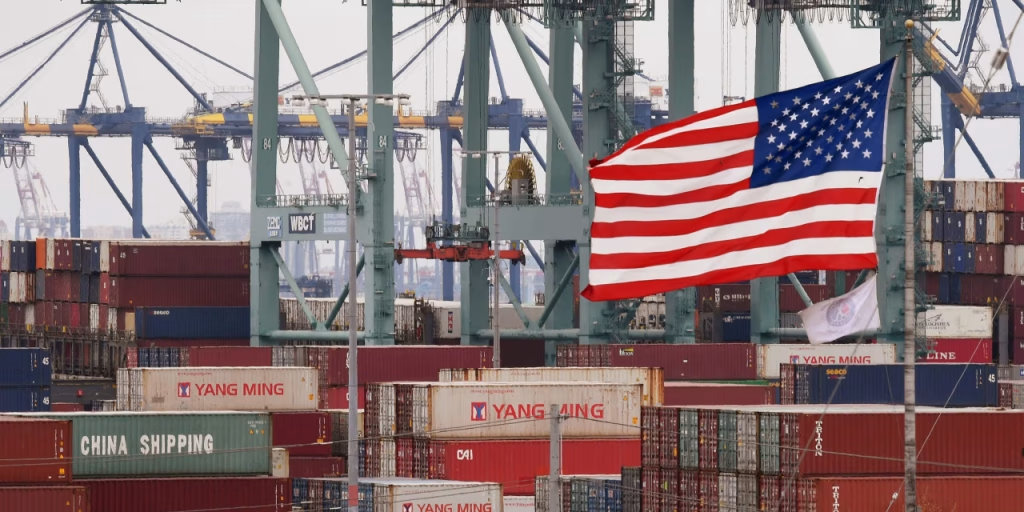In a significant diplomatic development, Iran’s Foreign Minister Abbas Araghchi confirmed that the next round of nuclear negotiations between Tehran and Washington took place on Saturday, April 19.
Describing the talks as “constructive,” Araghchi made the announcement during an interview with Iranian state television, offering a rare glimpse into the high-stakes backchannel diplomacy unfolding between two longtime adversaries.
According to Iranian reports, the latest discussions were held in Muscat, Oman, a trusted neutral ground for sensitive dialogues. This round marked the fifth indirect exchange of messages between the two nations, facilitated by Omani diplomats.

Notably, it ended with a brief yet symbolic face-to-face interaction between Araghchi and U.S. Middle East envoy Steve Witkoff—an unusual moment of direct contact in the fraught landscape of U.S.-Iranian relations.
The meeting reportedly began around 3:30 p.m. local time and lasted just over two hours. Journalists on the ground witnessed a convoy believed to be carrying Witkoff leaving the Omani Foreign Ministry before vanishing into the outskirts of Muscat, where the talks were said to have taken place.
Later, Iranian Foreign Ministry spokesman Esmail Baghaei confirmed via X (formerly Twitter) that the negotiations had officially begun, detailing the process of indirect dialogue through Omani mediation.

“These talks are being held at a location arranged by the Omani host,” Baghaei explained. “Representatives from Iran and the U.S. are not seated face-to-face but are exchanging positions and viewpoints through the Omani Foreign Minister.”
He later appeared on Iranian state television, emphasizing Iran’s commitment to diplomacy and reiterating that the country’s top priority was to safeguard its national interests.
“The Islamic Republic of Iran has one clear objective: to secure our national interests,” Baghaei said. “We are giving a genuine and honest opportunity to diplomacy—on the nuclear issue and, crucially, on the lifting of sanctions.”

While both sides have publicly downplayed expectations for immediate results, the fact that direct interaction occurred, however brief, suggests a tentative thaw in relations and a willingness to explore common ground.
Araghchi added that it was still “too early” to speak about timelines or future meetings but remained hopeful about progress, provided there was “sufficient will on both sides.”
In his remarks, Araghchi emphasized that the talks were focused solely on nuclear matters and that Iran’s participation was rooted in securing an “equal and fair” agreement. “The negotiations are indirect, and in our view, strictly on the nuclear issue,” he said. “We are ready to move forward if the dialogue remains balanced and respectful.”

Meanwhile, U.S. envoy Steve Witkoff, speaking to The Wall Street Journal prior to his trip, had set a tough tone. “Our position begins with the dismantlement of Iran’s nuclear program,” he said, echoing sentiments often voiced by President Donald Trump.
However, Witkoff also hinted at a degree of flexibility. “That doesn’t mean we won’t explore other pathways to compromise,” he acknowledged, while stressing that “weaponization of nuclear capability” remained a clear red line for Washington.
President Trump, whose administration has taken a hard stance on Iran, has not shied away from warning of possible military action should diplomacy fail. Iran, on its part, has continued to assert that its nuclear program is peaceful, though concerns remain over its uranium stockpile enriched to near weapons-grade levels.

The resumption of talks comes at a time of heightened global uncertainty, with both domestic and international audiences closely watching developments. The stakes are high: not only for regional security and nuclear non-proliferation, but also for millions of Iranians living under sanctions and economic hardship.
Though Saturday’s meeting may not have yielded immediate breakthroughs, it marked an important return to dialogue and diplomacy. As Baghaei put it, “This is just the beginning.”
Discover more from Scoop Hub
Subscribe to get the latest posts sent to your email.

